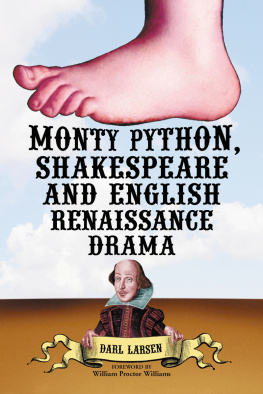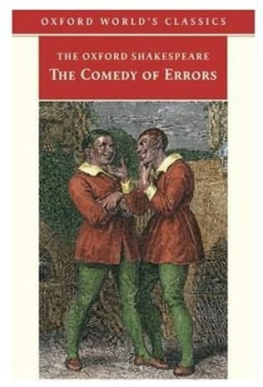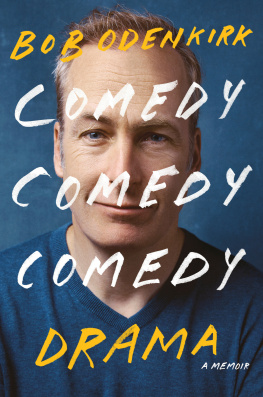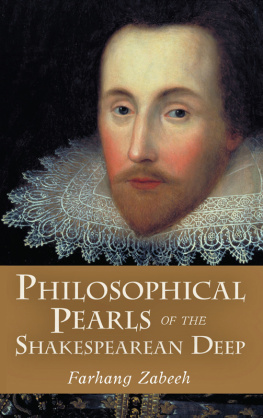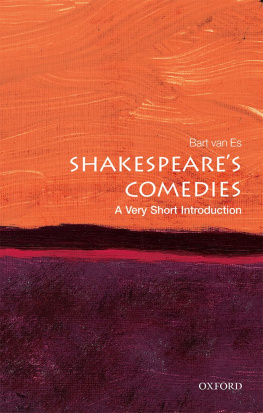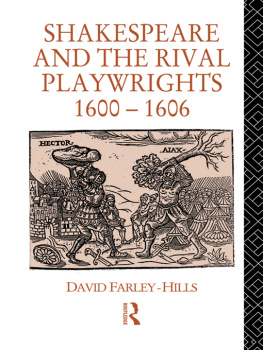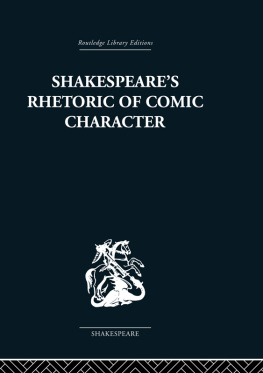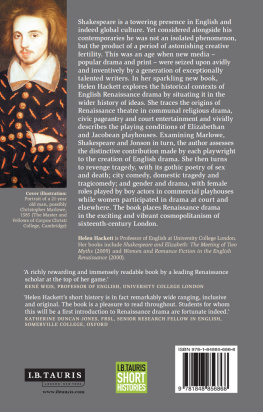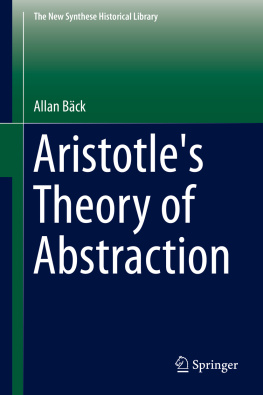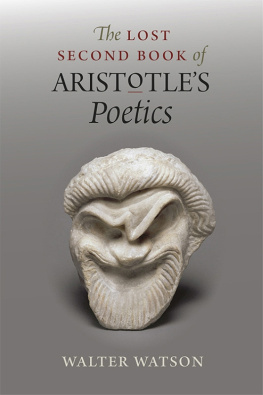Contents
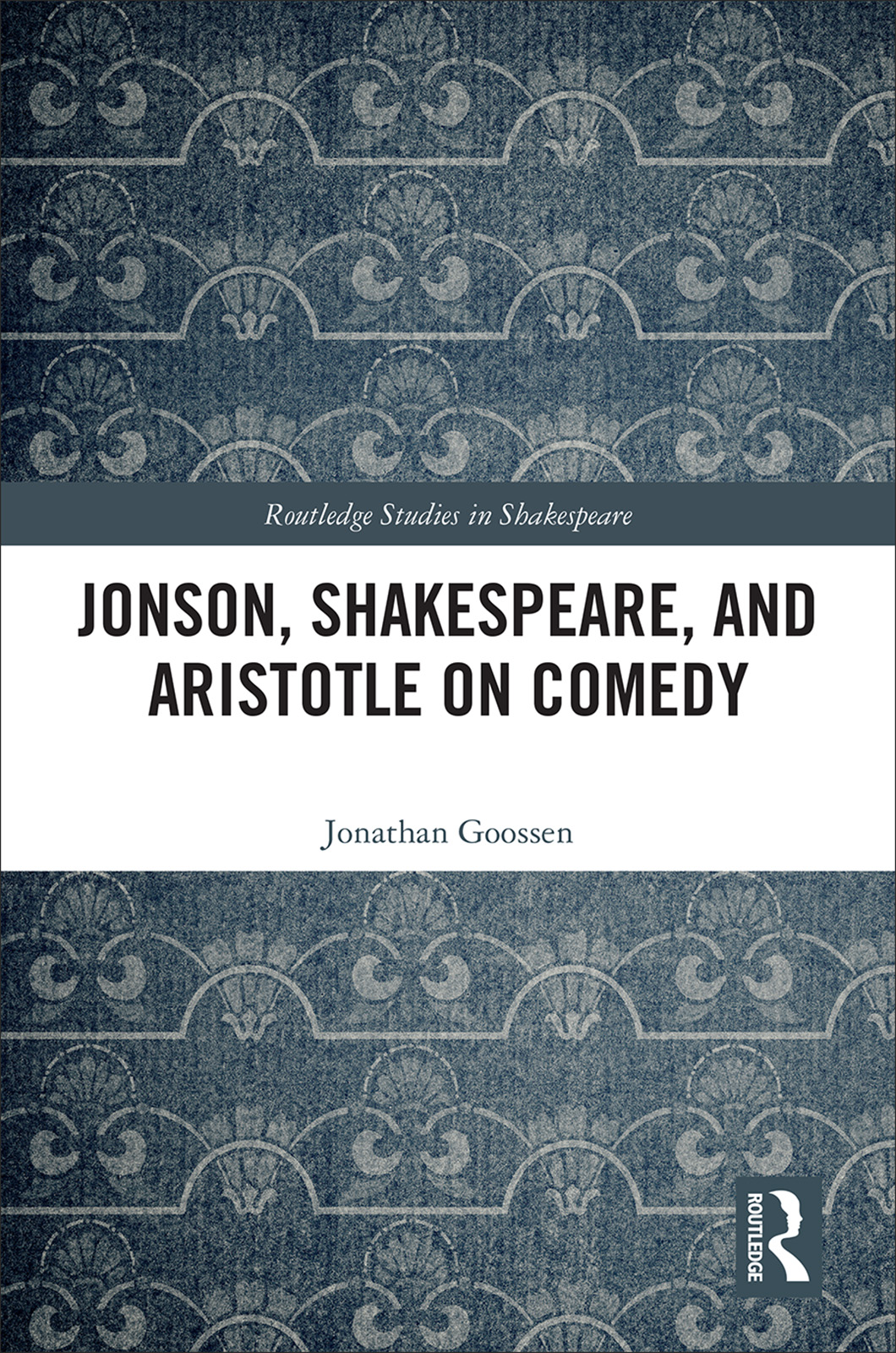
Jonson, Shakespeare, and Aristotle on Comedy
Jonson, Shakespeare, and Aristotle on Comedy relates new understandings of Aristotles dramatic theory to the comedy of Ben Jonson and William Shakespeare. Typically, scholars of Renaissance drama have treated Aristotles theory only as a possible historical influence on Jonsons and Shakespeares drama, focusing primarily on their tragedies. Yet recent classical scholarship has undone important misconceptions about Aristotles Poetics held by early modern commentators and fleshed out the theory of comedy latent within it. By first synthesizing these developments and then treating them as an interpretive theory, rather than simply an historical influence, this book demonstrates a remarkable consonance between Aristotelian principles of plot and its emotional effect, on the one hand, and the comedy of Shakespeare and Jonson, on the other. In doing so, it also reveals surprising similarities between these seemingly divergent dramatists.
Jonathan Goossen is Associate Professor in the Department of English at Ambrose University in Calgary, Alberta, Canada.
Routledge Studies in Shakespeare
For a full list of titles in this series, please visit www.routledge.com.
20 Shakespeare, Italy, and Transnational Exchange
Early Modern to the Present
Edited by Enza De Francisci and Chris Stamatakis
21 Shakespeare and Complexity Theory
Claire Hansen
22 Women and Mobility on Shakespeares Stage
Migrant Mothers and Broken Homes
Elizabeth Mazzola
23 Renaissance Ecopolitics from Shakespeare to Bacon
Rethinking Cosmopolis
Elizabeth Gruber
24 Shakespeares Lost Playhouse
Eleven Days at Newington Butts
Laurie Johnson
25 Shakespeares Hamlet in an Era of Textual Exhaustion
Edited By Sonya Freeman Loftis, Allison Kellar, and Lisa Ulevich
26 Shakespeares Suicides
Dead Bodies That Matter
Marlena Tronicke
27 The Fictional Lives of Shakespeare
Kevin Gilvary
28 Jonson, Shakespeare, and Aristotle on Comedy
Jonathan Goossen
First published 2018
by Routledge
711 Third Avenue, New York, NY 10017
and by Routledge
2 Park Square, Milton Park, Abingdon, Oxon OX14 4RN
Routledge is an imprint of the Taylor & Francis Group, an informa business
2018 Taylor & Francis
The right of Jonathan Goossen to be identified as author of this work has been asserted by him in accordance with sections 77 and 78 of the Copyright, Designs and Patents Act 1988.
All rights reserved. No part of this book may be reprinted or reproduced or utilised in any form or by any electronic, mechanical, or other means, now known or hereafter invented, including photocopying and recording, or in any information storage or retrieval system, without permission in writing from the publishers.
Trademark notice: Product or corporate names may be trademarks or registered trademarks, and are used only for identification and explanation without intent to infringe.
Library of Congress Cataloging-in-Publication Data
CIP data has been applied for.
ISBN: 978-1-138-71018-4 (hbk)
ISBN: 978-1-315-15914-0 (ebk)
Typeset in Sabon
by codeMantra
To my brother, Joshua Goossen
Memory Eternal
A book is proof that its author owes much gratitude to many people. I am particularly grateful to John Baxter, whose classes sparked my interest in Aristotle, whose attentive reading of Renaissance literature is a model for my own, and whose persistent enthusiasm for my work has helped bring it to publication. Joel Altman read both the dissertation from which this book emerges and sections of the revised manuscript, commenting percipiently on each. Christina Luckyj, Ronald Huebert, and Bruce Greenfield also sharpened my thinking in its early stages. Brent Nelson first taught me careful scholarship. I am grateful to him, Ken Graham, and Fr Luc Bonnel for wise counsel, and to Jason Quiring for listening. Tim Heath winsomely set me on my feet as an assistant professor at Ambrose University, and my current colleagues there, Rita Dirks, Darren Dyck, Ken Nickel, and Joel Thiessen make it a thought-provoking and happy place to work. I heartily thank Jennifer Abbott at Routledge for her early and eager interest in this book and Michelle Salyga for deftly carrying it through to publication. Christine Jacob has been an artful research assistant in the final stages of writing.
Because life is larger than scholarship, I am most grateful to my family. My parents Ted and Mary Goossen instilled in me an early love for books and ideas and the ability to work hard to understand them. My children Jacob, Luke, Madeleine, and Mark provide me first-hand experience of the indignation, laughter, and love about which I have written. With Cindy Goossen, I know the mysterious law of marriage, founded in reason, loyal, just, and pure; she makes me the happiest man I know.
Through various scholarships and grants, The Social Sciences and Humanities Research Council of Canada, the Killam Trusts, and Dalhousie University financially supported the initial stages of this project, and Ambrose University, the latter. I am grateful to each.
Earlier versions of portions of this book have appeared in the Ben Jonson Journal and in Animus: The Canadian Journal of Philosophy and the Humanities; I thank the editors of each journal for permission to reuse that material here.
Ben Jonson called Aristotle the first accurate critic and truest judge, nay, the greatest philosopher, the world ever had. The literary-theoretical musings in his commonplace book, Timber, or Discoveries, demonstrate both substantial knowledge of and high regard for Aristotles Poetics, including its brief words on comedy. Jonsons dramatic prologues make regular mention of Aristotelian ideas, and the plays themselves deliberately manifest these. Indeed, in his conscious reaction against what he saw as the inanity of the homegrown Elizabethan comic stage and his equally conscious recourse to classical ideals, Jonson has been seen as the godfather of the neoclassical comedy that would come to dominate the English stage during the Restoration. William Shakespeare, despite not leaving us any writings as theoretically explicit as Jonsons, was also clearly aware of the Aristotelianism that so influenced both his friend and the seventeenth-century continental stage. Yet in opposition to Jonson, Shakespeare seems to deliberately ignore or even violate such principles, often preferring to explore the dramatic possibilities of the native comedic tradition that Jonson dismissed. These different responses to Aristotelian theory form an important plinth in the later critical construction of Shakespeare as the free, intuitive poet of nature and Jonson as the brilliant but plodding poet of art. Similarly, from the Romantics forward, Aristotle and his Poetics have been seen as one of the chief sources of those stultifying dramatic rules that smothered Jonson but were powerless over Shakespeare. This book challenges these commonplace beliefs about Aristotles theory, often still held by English literary critics, and in light of this challenge, reassesses the relationship of Shakespeares and Jonsons comedy both to Aristotles ideas and to each other. When a set of misunderstandings of Aristotle that originated in the sixteenth century and obtains to the present are corrected, his ostensibly prescriptive and pedantic theory becomes strikingly exploratory and subtle, and as a result, strikingly relevant to understanding not only Jonsons comedy, but Shakespeares as well.


